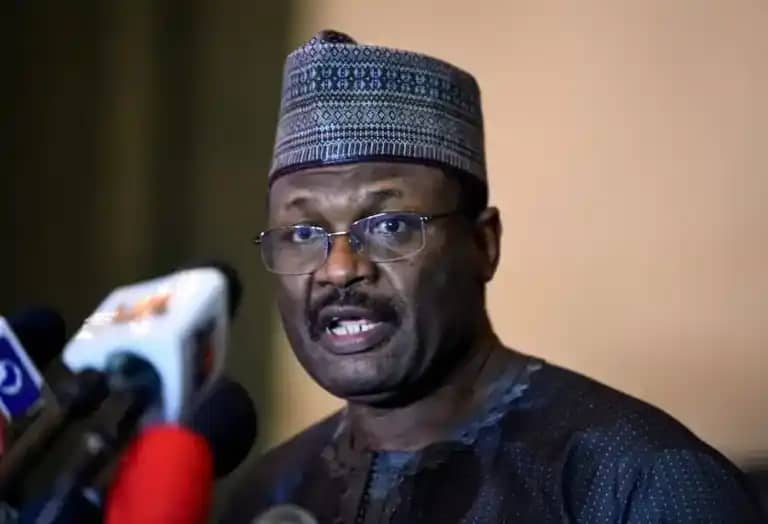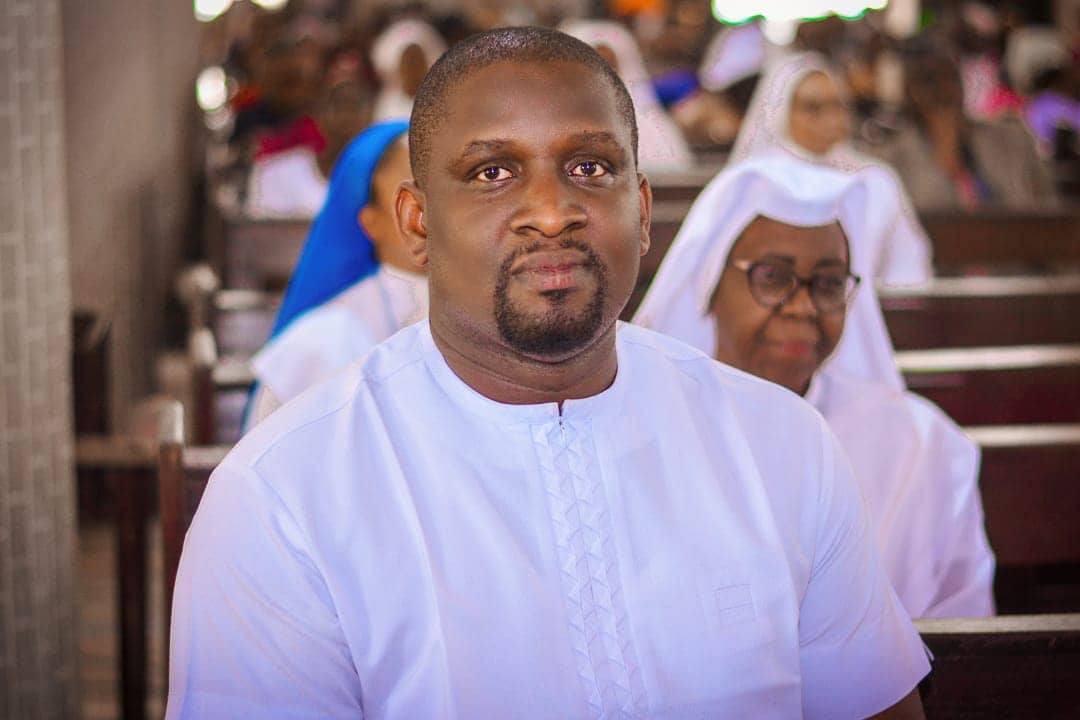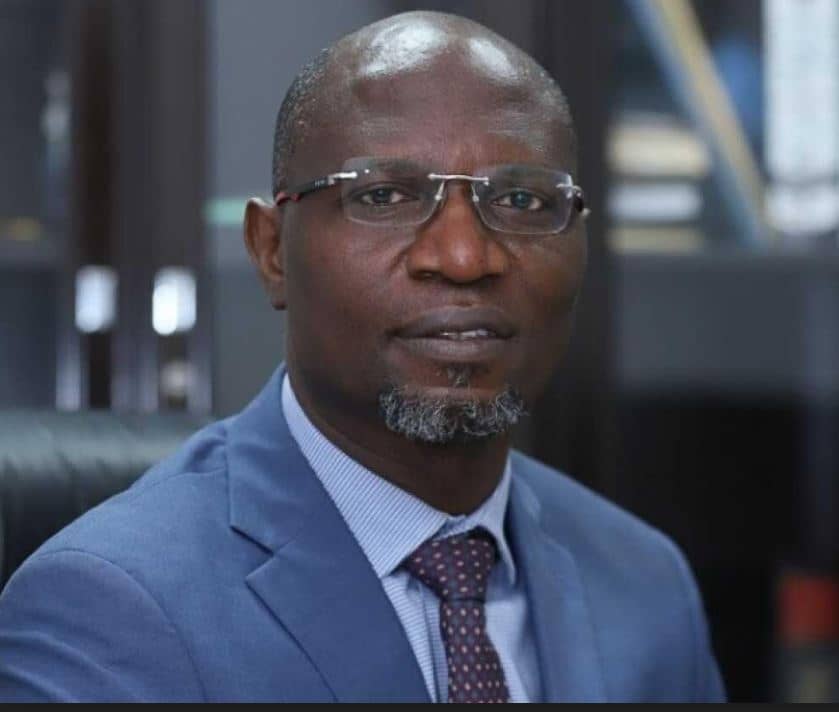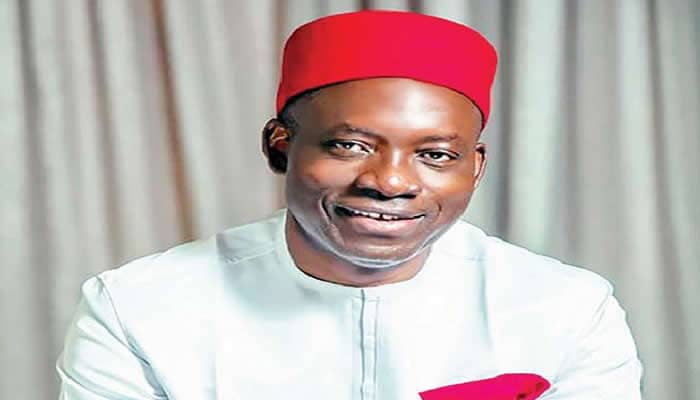
INEC STATE POSITION OF LAW ON TENURE OF FCT COUNCIL CHAIMEN

The Independent National Electoral Commission (INEC) has provided clarity on the position of law on the tenure of Federal Capital Territory (FCT) council chairmen.During a meeting with the Inter-Party Advisory Council (IPAC) in Abuja on Friday, INEC Chairman, Prof. Mahmood Yakubu, revealed that the current chairmen and councillors’ tenure would expire in June 2026.Yakubu urged political parties and other stakeholders to consider the provisions of the Electoral Act 2022 (As Amended) in relation to the tenure of Area Council Chairmen in the Federal Capital Territory (FCT).According to him, the Act stipulates a four-year tenure for the Chairmen and Councilors, as opposed to the three years outlined in the Electoral Act 2010.The INEC boss mentioned that the Commission had received inquiries from various entities, including Law Firms, an individual, a political party, and a group of FCT Chairmanship Aspirants, regarding the tenure of the Area Councils.These inquiries also requested the Commission to provide the Timetable and Schedule of Activities for the Area Council elections.Yakubu clarified that the inquiries were based on the Electoral Act 2010 (as amended), which was the applicable law during the Area Council elections held on Saturday, 12th February 2022.It is worth noting that the Electoral Act 2010 (as amended) provides for a three-year tenure for Chairmen and Councillors, a development that has fueled speculations that the tenure of the chairmen expires next year.Explaining the position of the law, however, Yakubu said, “Nigerians are aware that the National Assembly has since repealed and re-enacted the Electoral Act 2010 (as amended) as the Electoral Act 2022. In particular, in the exercise of its powers as the law-making body for the FCT, the National Assembly extended the tenure of the Area Councils from three to four years, thereby aligning it with executive and legislative elections nationwide. This is one of the important provisions of the Electoral Act 2022. The Act came into force on Friday, 25th February 2022, two weeks after the last Area Council elections in the FCT. By the time the elected Chairmen and Councillors were sworn in four months later on 14th June 2022, they took their oath of allegiance and oath of office on the basis of the new electoral Act (i.e. the Electoral Act 2022), which provides for a four-year tenure. Consequently, their tenure therefore expires in June 2026.“For the avoidance of doubt, tenure is not defined by the date of election but the date of the Oath of Office for executive elections or the date of inauguration for legislative houses. For the executive, the tenure belongs to the elected individual, while for legislators, the tenure belongs to the Legislature. A President/Vice President-elect, Governor/Deputy Governor-elect, Senator-elect, Member-elect, Chairman-elect or Councillor-elect cannot exercise the powers of office and draw from the remuneration attached to it until such a person is sworn in or the legislative house is inaugurated.“To further illustrate this position, the Commission has since released the Timetable for the 2024 Edo and Ondo State Governorship elections. This does not mean that whoever wins the election in Edo State in September or in Ondo State in November will immediately assume office. This will only take place after the administration of the oath of office upon the expiration of the tenure of the incumbent holders of the offices. Elections are only held earlier in order to avoid a vacuum. That is why the Constitution empowers the Commission to hold elections not earlier than 150 days and not later than 30 days before the end of the tenure of incumbent holders of elective offices.“In the case of the FCT, Section 108(1) of the Electoral Act 2022, under which the current Chairmen and Councillors were sworn in on 14th June 2022, is clear and therefore unambiguous:“1. An Area Council shall stand dissolved at the expiration of 4 years commencing from the date –(a) when the Chairman took the oath of office; or(b) when the legislative arm of the Council was inaugurated, whichever is earlier”.“Again, there are several judicial authorities, including the judgement of the Supreme Court, that tenure begins from the date of oath of office and not the date of election.“The Law Firms that have written INEC on behalf of their clients ought to have drawn their attention to both the law and judicial pronouncements on the matter. You may also wish to note that when the Electoral Act 2022 was signed into law two weeks after the Commission conducted the last Area Council elections in the FCT, the incumbent holders (Chairmen and Councillors) challenged us that we conducted the election too early, claiming that the new Electoral Act extended their tenure from three to four years. We reminded them that they took their oath of office under the old law before the coming into force of the new Electoral Act. Therefore, their tenure will expire in June 2022.“I wish to reassure you that we are aware of our responsibilities under the law. Section 28(1) of the Electoral Act 2022 requires the Commission to release the Timetable and Schedule of Activities 360 days (i.e. One year) before the date fixed for the election. It cannot be released two years ahead of elections”.Yakubu further emphasized that the INEC-conducted Area Council election in the FCT serves as a benchmark for Local Government elections nationwide. He highlighted the significant aspect of providing a stable tenure for both Chairmen and Councillors.He stated: “There has never been a caretaker committee in any Area Council in the FCT. Democratic elections are conducted on a regular basis. There is a plurality of electoral outcomes as no single political party has ever won elections in all the 68 Constituencies (six Area Council Chairmen and 62 Councillors). We will continue to uphold the sanctity of tenure and improve the credibility of these elections.“May I, therefore, appeal to all persons with ambition to contest for the positions of Chairmen and Councillors in the FCT to be guided by the provisions of the law and judicial pronouncements on the issue of tenure. I also appeal to political parties to enlighten their members accordingly. At the appropriate time, the Commission will release the Timetable and Schedule of Activities for the election”, he stated.In his remark earlier, the National Chairman of the Inter-Party Advisory Council IPAC, Yusuf Mohammed Dantalle, expressed that they visited the Commission to obtain clarification regarding the duration of the current Chairmen’s tenure for the six Area Councils and the 62 Councillors in the FCT.He mentioned that although the matter had been resolved previously, whether it was for three or four years, he believed it was important to involve other stakeholders and gather firsthand information from the commission regarding the tenure of council chairmen in the FCT.
Naija News
POLITICS
INEC States Position Of Law On Tenure Of FCT Council Chairmen
Published
on 28 June 2024
at 2:43 PM

The Independent National Electoral Commission (INEC) has provided clarity on the position of law on the tenure of Federal Capital Territory (FCT) council chairmen.
During a meeting with the Inter-Party Advisory Council (IPAC) in Abuja on Friday, INEC Chairman, Prof. Mahmood Yakubu, revealed that the current chairmen and councillors’ tenure would expire in June 2026.
Yakubu urged political parties and other stakeholders to consider the provisions of the Electoral Act 2022 (As Amended) in relation to the tenure of Area Council Chairmen in the Federal Capital Territory (FCT).
According to him, the Act stipulates a four-year tenure for the Chairmen and Councilors, as opposed to the three years outlined in the Electoral Act 2010.
The INEC boss mentioned that the Commission had received inquiries from various entities, including Law Firms, an individual, a political party, and a group of FCT Chairmanship Aspirants, regarding the tenure of the Area Councils.
These inquiries also requested the Commission to provide the Timetable and Schedule of Activities for the Area Council elections.
Yakubu clarified that the inquiries were based on the Electoral Act 2010 (as amended), which was the applicable law during the Area Council elections held on Saturday, 12th February 2022.
It is worth noting that the Electoral Act 2010 (as amended) provides for a three-year tenure for Chairmen and Councillors, a development that has fueled speculations that the tenure of the chairmen expires next year.
Explaining the position of the law, however, Yakubu said, “Nigerians are aware that the National Assembly has since repealed and re-enacted the Electoral Act 2010 (as amended) as the Electoral Act 2022. In particular, in the exercise of its powers as the law-making body for the FCT, the National Assembly extended the tenure of the Area Councils from three to four years, thereby aligning it with executive and legislative elections nationwide. This is one of the important provisions of the Electoral Act 2022. The Act came into force on Friday, 25th February 2022, two weeks after the last Area Council elections in the FCT. By the time the elected Chairmen and Councillors were sworn in four months later on 14th June 2022, they took their oath of allegiance and oath of office on the basis of the new electoral Act (i.e. the Electoral Act 2022), which provides for a four-year tenure. Consequently, their tenure therefore expires in June 2026.
“For the avoidance of doubt, tenure is not defined by the date of election but the date of the Oath of Office for executive elections or the date of inauguration for legislative houses. For the executive, the tenure belongs to the elected individual, while for legislators, the tenure belongs to the Legislature. A President/Vice President-elect, Governor/Deputy Governor-elect, Senator-elect, Member-elect, Chairman-elect or Councillor-elect cannot exercise the powers of office and draw from the remuneration attached to it until such a person is sworn in or the legislative house is inaugurated.
“To further illustrate this position, the Commission has since released the Timetable for the 2024 Edo and Ondo State Governorship elections. This does not mean that whoever wins the election in Edo State in September or in Ondo State in November will immediately assume office. This will only take place after the administration of the oath of office upon the expiration of the tenure of the incumbent holders of the offices. Elections are only held earlier in order to avoid a vacuum. That is why the Constitution empowers the Commission to hold elections not earlier than 150 days and not later than 30 days before the end of the tenure of incumbent holders of elective offices.
“In the case of the FCT, Section 108(1) of the Electoral Act 2022, under which the current Chairmen and Councillors were sworn in on 14th June 2022, is clear and therefore unambiguous:
POLITICS
INEC States Position Of Law On Tenure Of FCT Council Chairmen
Published
on 28 June 2024
at 2:43 PM

The Independent National Electoral Commission (INEC) has provided clarity on the position of law on the tenure of Federal Capital Territory (FCT) council chairmen.
During a meeting with the Inter-Party Advisory Council (IPAC) in Abuja on Friday, INEC Chairman, Prof. Mahmood Yakubu, revealed that the current chairmen and councillors’ tenure would expire in June 2026.
Yakubu urged political parties and other stakeholders to consider the provisions of the Electoral Act 2022 (As Amended) in relation to the tenure of Area Council Chairmen in the Federal Capital Territory (FCT).
According to him, the Act stipulates a four-year tenure for the Chairmen and Councilors, as opposed to the three years outlined in the Electoral Act 2010.
The INEC boss mentioned that the Commission had received inquiries from various entities, including Law Firms, an individual, a political party, and a group of FCT Chairmanship Aspirants, regarding the tenure of the Area Councils.
These inquiries also requested the Commission to provide the Timetable and Schedule of Activities for the Area Council elections.
Yakubu clarified that the inquiries were based on the Electoral Act 2010 (as amended), which was the applicable law during the Area Council elections held on Saturday, 12th February 2022.
It is worth noting that the Electoral Act 2010 (as amended) provides for a three-year tenure for Chairmen and Councillors, a development that has fueled speculations that the tenure of the chairmen expires next year.
Explaining the position of the law, however, Yakubu said, “Nigerians are aware that the National Assembly has since repealed and re-enacted the Electoral Act 2010 (as amended) as the Electoral Act 2022. In particular, in the exercise of its powers as the law-making body for the FCT, the National Assembly extended the tenure of the Area Councils from three to four years, thereby aligning it with executive and legislative elections nationwide. This is one of the important provisions of the Electoral Act 2022. The Act came into force on Friday, 25th February 2022, two weeks after the last Area Council elections in the FCT. By the time the elected Chairmen and Councillors were sworn in four months later on 14th June 2022, they took their oath of allegiance and oath of office on the basis of the new electoral Act (i.e. the Electoral Act 2022), which provides for a four-year tenure. Consequently, their tenure therefore expires in June 2026.
“For the avoidance of doubt, tenure is not defined by the date of election but the date of the Oath of Office for executive elections or the date of inauguration for legislative houses. For the executive, the tenure belongs to the elected individual, while for legislators, the tenure belongs to the Legislature. A President/Vice President-elect, Governor/Deputy Governor-elect, Senator-elect, Member-elect, Chairman-elect or Councillor-elect cannot exercise the powers of office and draw from the remuneration attached to it until such a person is sworn in or the legislative house is inaugurated.
“To further illustrate this position, the Commission has since released the Timetable for the 2024 Edo and Ondo State Governorship elections. This does not mean that whoever wins the election in Edo State in September or in Ondo State in November will immediately assume office. This will only take place after the administration of the oath of office upon the expiration of the tenure of the incumbent holders of the offices. Elections are only held earlier in order to avoid a vacuum. That is why the Constitution empowers the Commission to hold elections not earlier than 150 days and not later than 30 days before the end of the tenure of incumbent holders of elective offices.
“In the case of the FCT, Section 108(1) of the Electoral Act 2022, under which the current Chairmen and Councillors were sworn in on 14th June 2022, is clear and therefore unambiguous:
“1. An Area Council shall stand dissolved at the expiration of 4 years commencing from the date –
(a) when the Chairman took the oath of office; or
(b) when the legislative arm of the Council was inaugurated, whichever is earlier”.
“Again, there are several judicial authorities, including the judgement of the Supreme Court, that tenure begins from the date of oath of office and not the date of election.
“The Law Firms that have written INEC on behalf of their clients ought to have drawn their attention to both the law and judicial pronouncements on the matter. You may also wish to note that when the Electoral Act 2022 was signed into law two weeks after the Commission conducted the last Area Council elections in the FCT, the incumbent holders (Chairmen and Councillors) challenged us that we conducted the election too early, claiming that the new Electoral Act extended their tenure from three to four years. We reminded them that they took their oath of office under the old law before the coming into force of the new Electoral Act. Therefore, their tenure will expire in June 2022.
“I wish to reassure you that we are aware of our responsibilities under the law. Section 28(1) of the Electoral Act 2022 requires the Commission to release the Timetable and Schedule of Activities 360 days (i.e. One year) before the date fixed for the election. It cannot be released two years ahead of elections”.
Yakubu further emphasized that the INEC-conducted Area Council election in the FCT serves as a benchmark for Local Government elections nationwide. He highlighted the significant aspect of providing a stable tenure for both Chairmen and Councillors.
He stated: “There has never been a caretaker committee in any Area Council in the FCT. Democratic elections are conducted on a regular basis. There is a plurality of electoral outcomes as no single political party has ever won elections in all the 68 Constituencies (six Area Council Chairmen and 62 Councillors). We will continue to uphold the sanctity of tenure and improve the credibility of these elections.
“May I, therefore, appeal to all persons with ambition to contest for the positions of Chairmen and Councillors in the FCT to be guided by the provisions of the law and judicial pronouncements on the issue of tenure. I also appeal to political parties to enlighten their members accordingly. At the appropriate time, the Commission will release the Timetable and Schedule of Activities for the election”, he stated.
In his remark earlier, the National Chairman of the Inter-Party Advisory Council IPAC, Yusuf Mohammed Dantalle, expressed that they visited the Commission to obtain clarification regarding the duration of the current Chairmen’s tenure for the six Area Councils and the 62 Councillors in the FCT.
He mentioned that although the matter had been resolved previously, whether it was for three or four years, he believed it was important to involve other stakeholders and gather firsthand information from the commission regarding the tenure of council chairmen in the FCT.
Stream, share and News
CONNECT WITH NANTSAK NEWS





